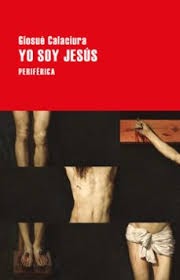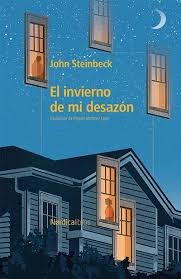
Original language: Italian
Original title: I am Jesus
Translation: Miguel Ros González
Year of publication: 2021
Valuation: Can be read
Interesting, attractive. I am not referring to any famous actor, but to a book that promises to tell the story of Jesus of Nazareth in his young years, that stage from which what was called sacred history It says almost nothing, at least that I know of. The Messiah of Christians, prophet for Muslims, was a man of flesh and blood regardless of other considerations, and he must have had a childhood, adolescence and early youth. Faced with this void, Calaciura offers a possible version, fantasizing about what it could have been like, creating something that with lax criteria we could classify as a historical novel. And yes, it seemed interesting to me, although not entirely new, because others had done it before, like the well-known The gospel according to Jesus Christ by Saramago, which I have not read and I think it delves into the same topic.
Expectations are important when we read a book, what one expects from it before starting or after consuming a few pages will largely determine the opinion we finally form. In this case, I expected a recreation in which the necessary degree of imagination connects with what we know (in my case, very little) from the biblical passages, but also with the historical context, a different vision, secular if you will, of a stage that is unknown, who knows if due to the disinterest of the evangelists or due to the deliberate desire to hide it.
Jesus writes in the first person, a kind of youth memoir that begins at an indeterminate age that we could place in adolescence. And the story that Calaciura puts together is described better than anyone by one of the inevitable compliments that adorn the lapel: The Gospel of Calaciura is an adventure novel! (it says All Books). Aside from the rhyme, I suppose unintentional, and the very debatable complimentary nature of the quote, it is exactly like that. Instead of the serious little boy who was lost and was found in the temple arguing with the priests (an episode that is incidentally absent from the book), what we do have is a traveling circus, a couple of brides, unidentified bandits that devastate the village, attacks of feral dogs and a drought that burns the fields. At some point you might think that the author is giving a twist to the seven plagues of Egypt, but I highly doubt it, I think he has simply launched into an action story, generally quite poor as well.
Deficient because it has the somewhat overloaded tone of certain youth literature and, apart from some inconsistencies and anachronisms, especially because almost all of these adventures are simple, repetitive and gratuitous, without a justified origin or development or connection to a coherent idea. A kind of hobby that could have continued two hundred more pages if Calaciura had continued to use that somewhat childish inventiveness, or her editor had advised him to do so.
But, of course, I have given it a rating in which something can be saved. Perhaps the seasoning of some well-known biblical scenes and characters (although I believe they were placed in a rather capricious manner), fairly well-crafted insinuations regarding the now classic disquisition on Mary’s virginity, or light (insufficient) notes related to suspicion of Rome against any hint of rebellion in its possessions. Perhaps the most successful thing is the very different relationship that Joseph and Mary have with their son. Her father seems to try to show her the path towards a normal life as an honest carpenter, she seems to hide behind a veil of silence the decisive secret that will only be revealed when the time comes. This inner struggle of María is transmitted in some way to her son, who is sometimes aware that there is something important that she does not know and that perhaps will not allow her to live the normal life that now seduces her. In this sense, being generous we could label it training novel.
This, plus some quite successful scenes, and a couple of clever turns serve to soften the fiasco. But, as I said before, everything will depend on the reader’s expectations when the book begins: I have tried to warn of what there is, but if someone likes a simple, entertaining and unpretentious narrative, with the touch of color that characters can give it very well-known, move on with the matter.
Source: https://unlibroaldia.blogspot.com/2024/05/giosue-calaciura-yo-soy-jesus.html


